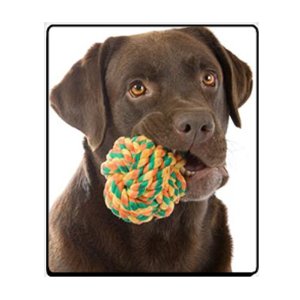Our furry little friends are likely to develop dental disease if their dental needs are ignored. Periodontal disease is not uncommon among dogs, particularly small dog breeds. And just like with humans, these problems can result in bad breath, yellowed teeth, and in the worst of cases, even progress to loss of teeth.
The development of such problems usually begins with such signs as swollen, red, and painful gums. Your pet may have less of an appetite as well. These signs indicate a need for immediate professional care.
Tooth decay and/or the loss of teeth usually indicate the presence of bacteria in the mouth. If left untreated the damage can progress from only involving the mouth to further damage that can include serious complications related to the kidneys, lungs, and heart, all of which can lead to a shortened lifespan. Periodontal problems usually start with the formation of plaque.
Plaque builds on the teeth and in thirty-six hours or less, plaque can harden and tartar can form. This problem usually develops first and the worst in the upper back teeth. Unfortunately, once tartar has formed, it cannot be brushed away.
The good news is that these problems can be avoided. Although healthy routines can be started with any dog at any age, it is always best to start healthy routines with a young puppy. If the dog is older you should insure that he has a professional dental cleaning and then begin the healthy dental routine at home.
If you have a regular routine of brushing your dog’s teeth on a daily basis you can avoid most of these problems. The routine should be established while the dog is young if at all possible. He will then accept the brushing as part of his regular care.
At first the dog will wonder what you are doing so it is best to allow him to taste the doggie toothpaste. These special pastes are formulated to be appealing to dogs. You can use your finger or a special dog toothbrush. Don’t forget to clean both the teeth and the gums. Begin in the back and work in small circular motions. The entire brushing process will take less than a minute.
Providing such things as chew treats, hard dog biscuits and bones, and even soft toys for your pet can help to prevent dental problems. Besides keeping the teeth strong and healthy many of the items are specially formulated to freshen the breath. Feeding crunchy food items on a regular basis is another way to keep your pet’s teeth healthier. Another tip is that while warming your dog’s food will often make it more appealing it is important to insure that the food is only slightly warm and never hot. On the flip side, dogs should not be served cold food.
Dental Care For Your Dog courtesy Dog Articles.
Looking for a great gift idea? Who wouldn’t love an adorable cutting board showcasing their favorite breed? Check out all of the great doggie gift ideas on Amazon.com –doggieoftheday@amazon.com






